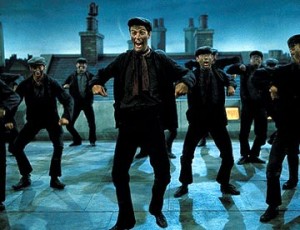 Hey Everyone, Ken here. This is the first in a new series of articles by Lisa Theriot on an interesting audio topic, accents. Voice actors are frequently called on to provide different types of accents when performing voice over jobs. One of the most requested types of accents is “British” (as if everyone in England, Scotland, Wales and Northern Ireland all speak the same!–but that’s another harangue). This first entry in Lisa Theriot’s Accent on Accents series tackles the English Cockney accent. So without further ado, here is Lisa Theriot’s Accent on Accents #1:
Hey Everyone, Ken here. This is the first in a new series of articles by Lisa Theriot on an interesting audio topic, accents. Voice actors are frequently called on to provide different types of accents when performing voice over jobs. One of the most requested types of accents is “British” (as if everyone in England, Scotland, Wales and Northern Ireland all speak the same!–but that’s another harangue). This first entry in Lisa Theriot’s Accent on Accents series tackles the English Cockney accent. So without further ado, here is Lisa Theriot’s Accent on Accents #1:
The Curse of Dick Van Dyke
When we lived in England, we found that it was commonly accepted among most Brits that the hands-down worst fake British accent ever was affected by Dick Van Dyke in the film Mary Poppins. Considering that the film is now decades old and still has the power to haunt, you have to think the trauma was pretty severe. So what were Dick’s big mistakes? Two very basic ones that a lot of people make when imitating accents: Overdo and Disconnect.
Overdo is pretty easy to understand. Most people recognize bad actors, because they look like they’re acting. (Good actors make you forget you’re watching an actor, because it seems so effortlessly genuine.) Bad accents are much the same. The actor will have a couple of signature sounds, like dropping initial ‘Hs’ and rhyming <day> with <eye> in the case of a Cockney accent, and they will flog them for all they are worth. Trouble is, people vary their vowel sounds based on how much stress the vowel receives. (And they vary their consonant sounds based on a number of factors, but that’s another article.) Try saying “mayday” and you’ll probably find your long-A sound is lighter on either syllable than it would be if you just said “day,” and oodles lighter than if you belted “day” like the last line of “Tomorrow” from Annie. A good fake accent varies vowel sounds just as you would in your natural speech. For contrast, listen to Audrey Hepburn in My Fair Lady. The Cockney accent was just as fake for the Belgian-born actress, who didn’t move to Britain until she was nineteen, but it seems much more natural. (People in the know would never believe she had been born within the sound of Bow bells, but real Cockney experts are the serious minority.)
Disconnect often accompanies Overdo. Actors have often drilled a few words or phrases, and when those are out, they think they’ve done their job and let the rest slide. Listen how often Dick will follow a hugely overdone long-A “eye” sound with a normal American long-A shortly thereafter. And all the little in-between words that make up most of our sentences aren’t worked on at all, so you get sentences like, “<accent> is in the <accent> with the <accent>.” Learning how things get strung together is the real key to selling an accent.
So what’s an aspiring Cockney to do? Hitting YouTube is a good start. And I’m not talking about links by Americans entitled, “How to Speak with a Cockney Accent,” I’m talking about actual Cockneys (there are plenty of them). Just listen. If you really want to learn, type yourself a script of what the person is saying and read along. Look at what they do with stressed and unstressed vowels. Pay attention to the little words. Pay special attention to what happens when two vowel sounds happen together (like “Diana_and” or “saw_a”). Read the script in your natural accent and then listen again. Try imitating syllables, then words, then phrases. It takes practice, but you’ll soon find you can do a good enough job to fool most Americans, and you definitely won’t sound like a Dick.
Lisa Theriot
Hi Lisa,
Thanks for the helpful article.
As a British VO from London living and working in New York, I hear fake Brit accents every day and I’d say the biggest mistake made is consistency. The Queen of England and Jason Statham in his role in Snatch don’t sound the same but what I regularly hear with fake Brit accents is one sentence spoken as if it’s the Queen talking and the next as though it’s Jason Statham in Snatch talking.
To an English ear, this immediately exposes the phoney accent – no matter how bad the posh or cockney accent is, no one speaks with both – it’s always either one or the other.
Hope this helps,
James Clamp
British Voice Talent
james@jamesclamp.com
http://www.jamesclamp.com
I didn’t find Audrey Hepburn’s Cockney accent to be more natural. If anything, I found it worse than Dick Van Dyke’s. Only Bradley Whitford’s brief use of a Cockney accent in “Saving Mr. Banks” was a lot worse to me.
Good points :-).